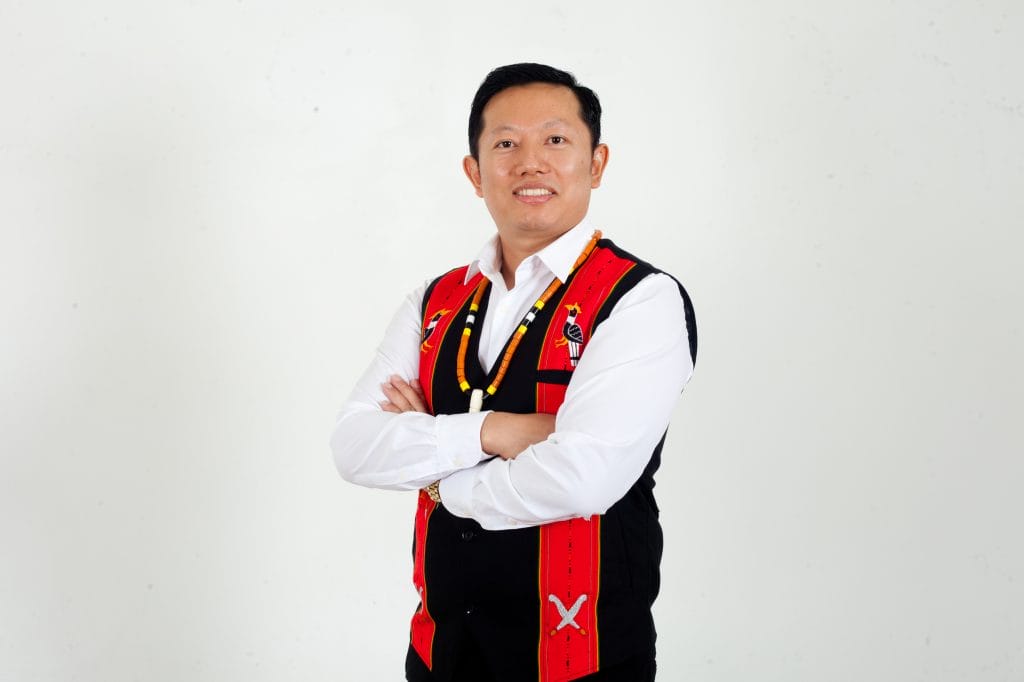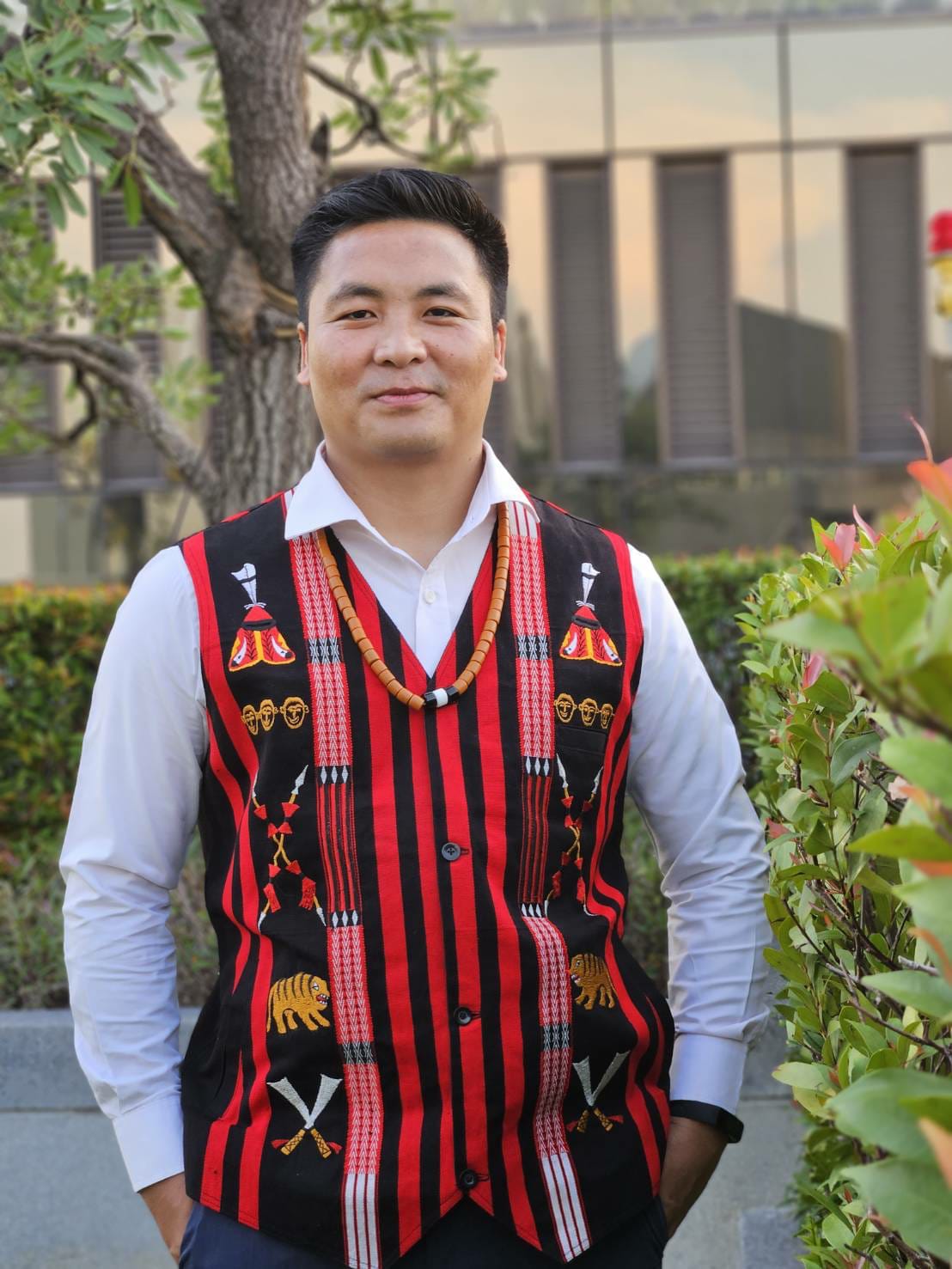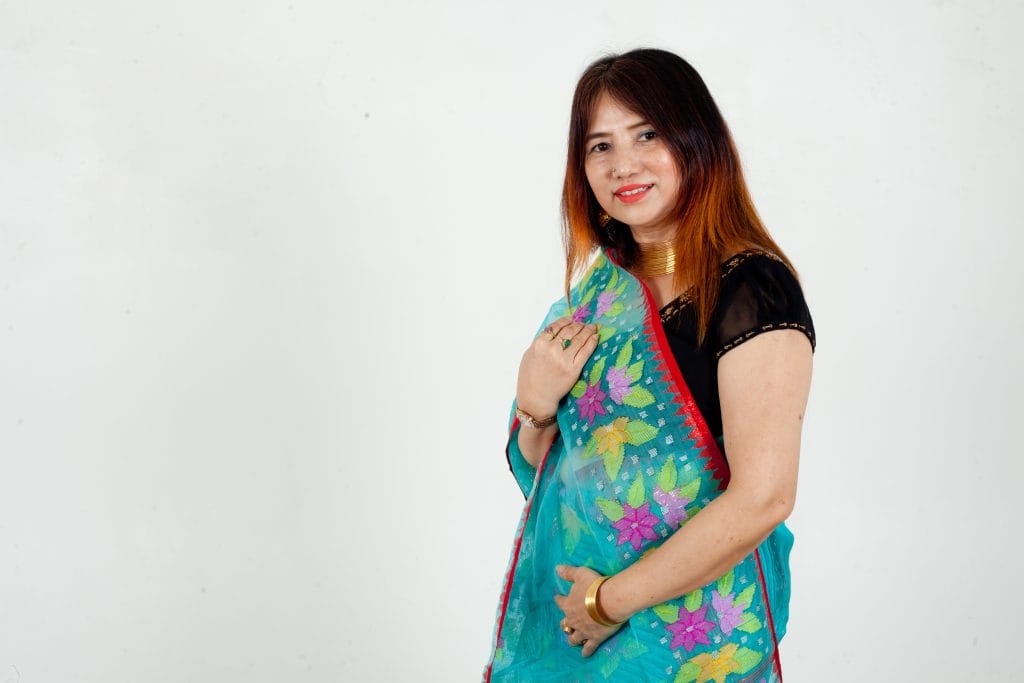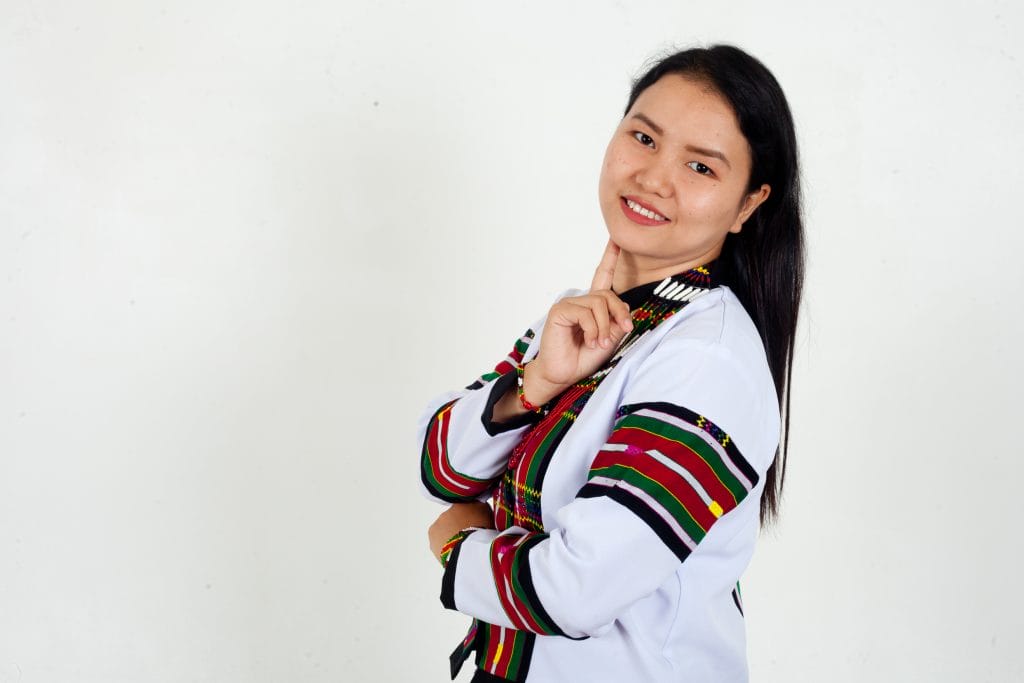They’re guided by the North(eastern) star!
By Aiden Jewelle Gonzales
It’s not hard to pick out India on a map of the world, but it’s often easy to forget about the Northeastern states perched on the other side of Bangladesh, comprised of the ‘seven sisters’ (Arunachal Pradesh, Assam, Manipur, Meghalaya, Mizoram, Nagaland and Tripura) and their ‘brother’ state of Sikkim. My first introduction to these lesser-known states of India was when someone from church gave me a packet of the now-infamous ghost peppers from Northeast India, once classified as the world’s hottest chilli pepper by the Guinness World Records. It was an eye opening (and eye-tearing) introduction to the existence of India’s NE states and their distinctive cuisines, cultures, and peoples.
Even today, many other members of the Indian diaspora are still not as familiar with the NE Indian community, and yet I was pleased to discover that there was a thriving one in Thailand. A few of them in Bangkok, who’ve integrated into Thai life for decades, have recently formed the Northeast Indian Society (NEIS), recognised by the Embassy of India in Bangkok, to support and uplift the community here, and showcase their rich cultural heritage. Masala met with them to learn more.
PISGAH GONMEI, FROM MANIPUR
President and Founding Member
I was born and brought up in a Christian family in Manipur, and I belong to the ‘Rongmei’ tribe, an indigenous ethnic group in Northeast India. I’ve been away from home for over 20 years, during which Thailand has been my second home for over 13 years. From my very first visit to Bangkok in 2009, I’ve found Thailand safe and homely, and have found a lot of similarities between Thailand and Northeast India; I’ve fallen in love with the Land of Smiles. I’ve taught in a couple of schools, studied my MBA here, and am now a manager in a German company.
My role as President is to provide leadership in supporting, guiding, facilitating, directing, promoting, and implementing the work of the NEIS to help make the community a better place for all, and to achieve shared objectives. I offer leadership in building collaborations with the NEISexecutivesandour community,supporttheprofessionalgrowthof leaders and professionals, and offer our collective professional expertise to collaborate with other Associations and Communities in Thailand.
In your opinion as its President, what are the main objectives of the NEIS?
- To give back to our NE community and assist them in whatever way possible or appropriate;
- To stay connected with our people from Northeast India in Thailand;
- To promote and represent our people, our rich culture, and traditions to Thai society and the other ASEAN societies in Thailand, and to the Embassy of India in Bangkok and the rest of the Indian diaspora here.
What kind of resources or support does the Society provide to individuals or families from the NE Indian community who may be facing difficulties, or need assistance?
- Information Sharing & Guidance: Providing correct and updated information at the right time is key. NEIS executives work hard toshare and provide to those in need, including setting up a Helpline Centre for our community to reach out for help during emergencies.
- Food & Accommodation: Our community is scattered in Thailand, but if any of them need a short trip to Bangkok for paperwork or to urgently fly to India, our NEIS community in Bangkok offers their home for short stays. Northeast Indians are known for their kind hospitality, and a home-cooked dinner is a must for our guests. During the critical COVID period, many in the community extended to help to those in need, delivering herbal medicines, vegetables, groceries, and more.
- Financial: As NEIS is a non-profit organisation, we are limited in our financial support of our community. We try our level best to provide financial support for those in need in our community by raising funds for emergencies (in the case of accidents, medical bills, etc.). We also asked for more support from the Embassy of India in Bangkok, and the rest of the Indian diaspora.
What are some of the key challenges that the Northeast Indian community in Thailand faces, and how does the Society work towards overcoming those challenges?
Firstly, the language barrier: most of our people can speak up to 4-5 languages, but picking up Thai as an additional language is a challenge for many. So, communication with non-English speaking locals is challenging, and some employers and the Ministry of Labour may require that certain jobs only employ Thai-speaking individuals. To that end, NEIS executives are planning to provide free Thai lessons to our community, and many friends have volunteered to teach Thai lessons for free to our people. Thai lesson schedules for beginners and intermediate-level students will be available soon.
Secondly, paperwork is a challenge. Thai laws and regulations often change, and they differ from province to province. Processing the paperwork for visas, work permits, licenses, etc. presents a challenge. The NEIS executives share updated and reliable information to our people, and if necessary, we will direct our people who need legal services or advice.
How do you hope to positively impact individuals or families from the Northeast Indian community?
Since we are in a foreign country, fostering positive community here is necessary. Our people must stand up for one another and support each other in times of sadness and happiness. I’ve now spent over a decade living here and supporting our people in whatever way I can; I’ve experienced joy and happiness building bonds between our people, and everyone has acknowledged and appreciated the support that we’ve rendered. I am very optimistic about the positive the impact that we can have on our Northeastern brothers and sisters in Thailand.
How does the Society collaborate with other Indian community organisations and the Embassy of India in Bangkok to address the needs and concerns of the Northeast Indian community?
Though our society is newly formed, the Embassy of India in Bangkok has extended their support, and NEIS executives are taking part in embassy-related events, and other events organised by the other Indian communities here. The Indian Association Thailand (IAT) is also willing to support and collaborate with our society in the days to come.
What are some of the major events or initiatives of the NEIS that you foresee?
We hope to promote our NE culture in our upcoming events and whenever appropriate. Our first official event is scheduled in September, and will focus on teachers in the Indian diaspora, however, we are also showcasing our NE culture during the event, in the form of food, a handloom corner, and dance and musical forms.
SHIRLEY ROY, FROM MANIPUR
General-Secretary and Founding Member
I was born in Imphal, where I spent my early childhood. At the age of nine, my family moved to Delhi, where I finished my school and pursued higher education. Six years ago, I decided to move to Thailand, a country known for its vibrant culture, dynamic environment, and abundant opportunities. Inspired by these elements, I established Bloom, an online flower shop based in Bangkok which aims to bring beauty and joy to people through floral arrangements. Alongside Bloom, I also co-founded a community initiative called Code Club, which helps children learn coding, a critical skill in this technology-driven world, to prepare them for a digitally-advanced future.
As General Secretary, my primary responsibility is to ensure smooth communication within the society, be it between committee members or with the broader community. Additionally, I play a crucial role in coordinating and organising events and initiatives that promote our rich cultural heritage, spanning cultural events, to workshops and seminars; to foster a sense of belonging among our members and extend our cultural outreach to the wider Thai community.
Furthermore, I act as a point of contact for NE Indians who may need assistance adjusting to life in Thailand, helping them navigate challenges they might face in a new country. I’m also responsible for strategic planning, alongside other society members, to ensure the sustainability and growth of our society. Finally, I ensure that all activities align with our mission to support, showcase, and uplift the NE Indian community in Thailand.
What was your motivation for helping to found the NEIS in Thailand?
We’d noticed that while the NE Indian community in Thailand was growing, there was a gap in terms of a structured support system that could assist these individuals in integrating into the local Thai culture, while also maintaining a strong connection with their roots. My motivation is to support and promote the cultural heritage of the NE Indian community in Thailand by organising engaging events and initiatives that showcase our diverse traditions and customs. Some major events and initiatives I foresee include cultural festivals, music and dance performances, art exhibitions, traditional food fairs, and language workshops. These activities will serve as platforms to educate the wider community about our rich heritage and foster a deeper appreciation for NE Indian culture in Thailand.
What is the membership structure of the society?
We don’t have a formal membership structure, as our society follows an open and inclusive approach, which ensures diversity, fosters a wider sense of community, and allows for a broad spectrum of ideas and contributions. The Society is open and free to anyone who identifies with, or has an interest in, the Northeast Indian culture, regardless of their place of origin. Our goal is to create a welcoming space that encourages participation from all individuals who want to learn about, celebrate, and support the rich cultural heritage of Northeast India.
What benefits do members receive?
Members of our society enjoy a range of perks:
- Cultural connection: members can stay connected with their roots, engage with their cultural heritage, and share it with the wider community in Thailand.
- A support network: we provide assistance and resources for NE Indians living in Thailand, particularly those new to the country.
- Community engagement: members can attend events from cultural festivals, to language workshops.
- Networking opportunities: within and beyond the NE Indian community in Thailand.
- Knowledge exchange: the NEIS is a platform for sharing and learning, promoting exchange of ideas, experiences, and knowledge.
- Volunteer opportunities: there are numerous opportunities to volunteer and contribute to the Society
MOTAN KONYAK, FROM NAGALAND
Finance Director and Founding Member
I’m from Wanching village under Mon district, Nagaland. I answered God’s calling to serve as a missionary in Thailand, where there are fewerChristians. I’m dedicated to sharing the message of my faith, and serving the community in Thailand.
As the Finance Director of NEIS, my main responsibilities include financial planning and reporting, budget management, fundraising, and ensuring compliance with financial regulations. I oversee the organisation’s financial health, provide financial insights for decision-making, and maintain financial controls and transparency.
How does the NEIS ensure transparency and accountability in its financial management?
We ensure this through accurate record-keeping, and open communication. Examples include cultural events, career programmes, and community projects, all of which use funds responsibly to benefit the NE Indian community in Thailand.
TINU KILANG PONGEN, FROM NAGALAND Public Relations and Event
Director, and Founding Member
I am from a regular middle- class family back in Nagaland, and I am a singer-songwriter. I’ve been in Thailand for the last 17 years, and I love the beauty of cultural diversity – I’m very interested in learning about other cultures’ people, cultural practices, food, and more.
As Event Director, my role is to oversee the planning and execution of events, using creativity and art to enhance and represent the culture of the Northeast. I work with other departments within the organisation to determine the goals of each event, and to foster productive relationships with sponsors and partners.
As PR Representative, my roles and responsibilities include managing communication with the public, media, and stakeholders, promoting the Society’s events and initiatives, building positive relationships with external organisations, and creating awareness about the Northeast Indian community in Thailand through various channels and platforms.
How do you ensure that the NE Indian community in Thailand maintains strong bonds with the Northeast Indian states in terms of cultural exchange, tourism, and business opportunities?
Since NEIS has been newly formed, we haven’t organised any cultural exchange programmes yet. Our priority is to promote the culture here in Thailand, for example, one of the very first gatherings that we would like to see happening very soon is a potluck meal for Northeasterners. However, if opportunities arise, we would love to create opportunities for Thais to visit Northeast India where they can personally experience the culture and interact with the people.
Are there any ongoing collaborations or partnerships with local Thai organisations, government agencies, or other Thai-Indian associations to further the NEIS’ objectives?
For our upcoming event in September celebrating Indian teachers, we are actively collaborating with the Embassy of India in Bangkok, the IAT, and other local associations. By working together with these esteemed organisations, we can enhance community engagement, promote cultural exchange, and strengthen ties between the Northeast Indian community and various entities in Thailand.
The NE Indian community in Thailand is not as well-known as other Thai-Indian communities who have been here for generations. What knowledge exchange would you like to have between the different communities?
NE Indians have great individual potential when it comes to skills, talents and also the ability to adjust, especially within different Southeast Asian cultures. The ability to understand and communicate in Hindi, English and different languages also gives us certain advantages in performing well in different professions, not just in India, but outside of India as well. 98 percent of the region is covered by international borders, so there is great potential for trade and collaboration. We would love for businesses and companies to explore possibilities in the Northeast.
TILOTAMA INSI, FROM MANIPUR
Founding Member
I was born and brought up in a beautiful state called Manipur; a land of undulating hills, stunning flora and fauna, lush forests, emerald valleys, richculture, centuries-old tradition and a rich, 3,000-year-old history. It’s where my forefathers laid down their lives fighting for freedom against British India and the Burmese (the period known as the Seven Years Devastation).
After completing my education including my Master’s degree, I married a Thai man and landed in the Land of Smiles, renowned for the welcoming and warm disposition of its culture and people. I’m now a Thai citizen, and have been living here for the past 24 years with my two boys and husband. Since I am an enthusiastic, self-motivated, responsible and hardworking woman, I’ve always loved challenging work. I am inquisitive and investigative about unexplored things in my life like spiritualism, creativity and business. Thailand offers me lots of opportunities to explore these. Presently, I am working in the Modern International School Bangkok (MISB).
What kind of support does the society provide to NE Indian students studying in Thailand, particularly in terms of education, career guidance, and cultural integration?
We are committed to supporting Northeast Indian students in Thailand in several key areas, to make their integration as smooth as possible:
- Education: We provide guidance to students navigating the Thai educational system and assist them in finding scholarship opportunities, if needed.
- Career: We offer personalised advice and guidance to help students make informed decisions about their job prospects and career paths.
- Cultural Adaptation: We organise social events and cultural exchange programmes to help students adapt to Thai culture and feel more at home.
- Support: We offer counselling services and support groups for students to share their experiences, tackle any challenges they may face, and make new friends.
MARRILYN ANTHALI, FROM MEGHALAYA
Founding Member
I am a Khasi of the Mawlong clan, and I was born and raised in Shillong, Meghalaya, by a family whose history was one of service to the people. I was educated in a convent and graduated from a university in Gujurat, and my first job was with the then newly-opened North-Eastern Hill University.
Thereafter, I moved to Thailand to start my family and have been here for the last 46 years. Family and children were my first priority, and when my children were settled in their schools, I started my career with a non-profit organisation, and thereafter moved to a permanent job with an international organisation, where I served for 20 years, till my retirement.
My ties with my roots in Shillong are strong, and I maintain an ancestral home of over 100 years there. I spend at least three months a year there, and have hosted many Thai and international visitors. Thailand is a beautiful country that has taught me many lessons in life, such as gentleness in manners, generosity and kindness to the weak and poor, treating maids with kindness and understanding, politeness, shunning aggressive behaviour, pragmatism, and tolerance and respect for all religions.
What does the NEIS mean to you personally?
My personal view is that the Society first and foremost aims to help its own people who come to Thailand to offer their skills to this country and earn their livelihood. A responsible, able, selfless and caring committee can make a difference in the working and living experiences of the NE India families here.
MICKY LALDINPUII ROWNDAR, FROM MIZORAM
Founding Member
I belong to a community known as Mizo from Mizoram, and I came to Thailand in 2010 and I have been working as a teacher since. I like teaching, especially imparting knowledge to the younger generation for a better future and stability. I believe education is the main foundation of any development in a community or nation as a whole, and this is something that we hope to promote in the NEIS.













